#(even the most moral ships I've shipped have at least tried to maim each other once or twice)
Explore tagged Tumblr posts
Text
Man, I really thought that Charlie was keeping it a secret from Sarah that he was investigating that cold case. I was hoping he was keeping it a secret, that’s how little drama these two have this year. Anyway, now I’m hoping that he’ll become unhinged in the next episode lol
#hudson and rex#okay fine I'm just getting teeny tiny caskett vibes from this case (despite the victim being unrelated to charlie)#I mean in my head I know where I want this to go lol#but it's not going there#le sigh#(let's just say that I'm not used to drama-less tv relationships)#(even the most moral ships I've shipped have at least tried to maim each other once or twice)#(it's not a compliment or anything merely an observation)
9 notes
·
View notes
Note
Character ask: Hades and Persephone
I'll give my answers for the mythical characters, and in Hades' case, for Disney's Hercules. I'm not familiar with Hadestown despite it's popularity, so I have nothing to say about those versions of Hades and Persephone, or any other modern reimaginings.
Hades
Favorite thing about them: In classical mythology, I like the fact that, while stern and grim, he's a just god and not cruel, and has fewer stories of petty or sadistic deeds attached to him than most of the other gods and goddesses. It's too bad that modern Western culture tends to conflate him with the Christian Satan and portray him as the token evil god, because to the Greeks he wasn't.
In Disney's Hercules, even though he's a classic example of a demonized, Satan-conflated Hades, he's still one of the best Disney villains: a funny one with a witty "used car salesman" personality, yet imposing when he needs to be, and easy to "love to hate."
Least favorite thing about them: In mythology, the kidnapping of Persephone. In Disney's Hercules, the fact that he's a villain who tries to kill Hercules, imprison the other gods and goddesses, and take over Olympus.
Three things I have in common with them:
*I have dark hair, as he's traditionally described.
*I don't leave my home very often.
*Like Disney's Hades, I have a temper. (Though I don't literally blaze with fire.)
Three things I don't have in common with them:
*I'm female.
*I'm not a deity of the Underworld.
*I would never kidnap anyone.
Favorite line:
From The Homeric Hymn to Demeter:
"Go now, Persephone, to your dark-robed mother, go, and feel kindly in your heart towards me: be not so exceedingly cast down; for I shall be no unfitting husband for you among the deathless gods, that am own brother to father Zeus. And while you are here, you shall rule all that lives and moves and shall have the greatest rights among the deathless gods: those who defraud you and do not appease your power with offerings, reverently performing rites and paying fit gifts, shall be punished for evermore."
From Disney's Hercules:
"So is this an audience or a mosaic?"
"Memo to me: maim you after my meeting,"
"I've got twenty-four hours to get rid of this bozo, or the entire scheme I've been setting up for eighteen years goes up in smoke, and you are wearing his merchandise!!!"
"We dance, we kiss, we schmooze, we carry on, we go home happy. What do you say? Come on."
brOTP: His divine brothers and sisters, when they're not pitted against each other.
OTP: Persephone, in the versions of the myth where their marriage is ultimately happy.
nOTP: In Disney's Hercules, Meg. In mythology, well... I hope no one ever ships him with Cerberus!
Random headcanon: For Disney's Hercules: Even though the ending implies that he'll be trapped in the depths of the River Styx forever, I think he'll eventually get out. He can't drown, after all, he's immortal, and even if it takes him a few centuries, he'll eventually get out and cause trouble again. But he'll always be defeated in the end.
Unpopular opinion: While I agree that it's unfair to constantly demonize him, I also think it's fair to portray him as the antagonist of the Persephone myth and not romanticize her kidnapping. That said, I don't think retellings that romanticize their marriage are inherently bad and problematic either – it all depends on how the story is told. But either way, I do think it's high time that mythology adaptations stop portraying him as the single dark, cruel god in contrast to the benevolent, shining Olympians. That's distorting the myths through a Christian lens. Zeus and most of the other Olympians also chased and kidnapped unwilling love interests, and did many even worse deeds too. They're all morally gray.
Song I associate with them: None in particular.
Favorite picture of them:
These ancient statues:


This Italian statue from 1588:
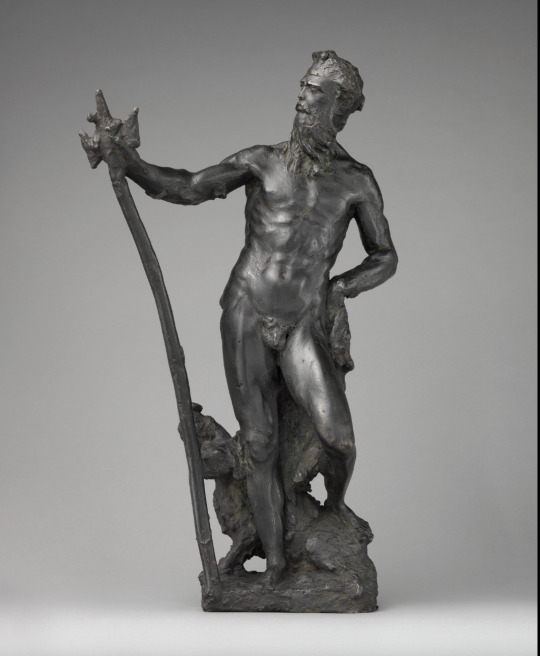
Gian Lorenzo Bernini's statue The Abduction of Proserpina, from the 1620s:
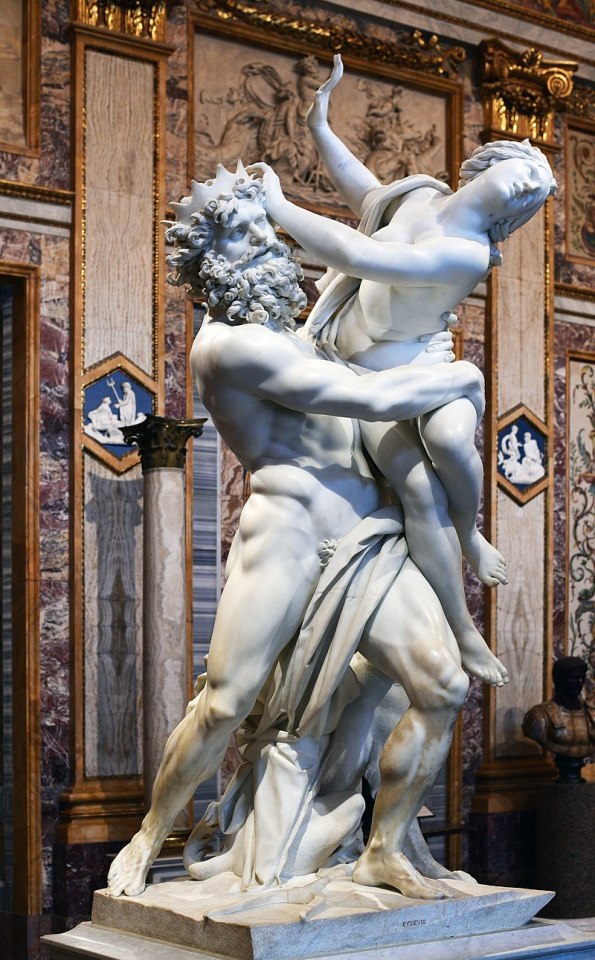
And in a drastic change from the elegance above, these pictures from Disney's Hercules:


Persephone
Favorite thing about them: Her status as a nature goddess who embodies the changing seasons makes her a fascinating character. Not only does she split her time between the upper world and the Underworld, but as a result she has a dual personality – the gentle, sunny goddess of spring, and the stern, feared queen of the dead – which makes her unique among the Greek deities.
Least favorite thing about them: The fact that in some versions of the story of Minthe (the nymph who became the first mint plant after her death), she brutally kills the poor nymph out of jealousy of Hades' affair with her. Fortunately, not all versions of the myth go this way – in another version, it's Demeter who kills Minthe for boasting that she's more beautiful than Persephone.
Three things I have in common with them:
*I have both a light side and a dark side.
*I'm close to my mother.
*I like pomegranates.
Three things I don't have in common with them:
*I'm not married.
*I've never been kidnapped.
*I'm not a goddess.
Favorite line:
Her account of her kidnapping from The Homeric Hymn to Demeter:
"We were playing and gathering sweet flowers in our hands, soft crocuses mingled with irises and hyacinths, and rose-blooms and lilies, marvellous to see, and the narcissus which the wide earth caused to grow yellow as a crocus. That I plucked in my joy; but the earth parted beneath, and there the strong lord, the Host of Many, sprang forth and in his golden chariot he bore me away, all unwilling, beneath the earth: then I cried with a shrill cry. All this is true, sore though it grieves me to tell the tale."
brOTP: Her mother Demeter (in traditional versions of the myth where they have a warm, loving bond, not the versions where Demeter is controlling and Persephone is glad to escape from her), and the nymphs with whom she plays and picks flowers just before Hades kidnaps her.
OTP: Hades, in the versions of the myth where their marriage is ultimately happy.
nOTP: Her father Zeus. Brother/sister incest and uncle/niece or aunt/nephew incest might be normal for Greek gods and goddesses, but not parental incest!
Random headcanon: This isn't a headcanon so much as "which of the different versions of her myth I like best." I prefer the Homeric Hymn to Demeter's claim that Persephone spends just four months each year with Hades, and eight months with Demeter, to Ovid's claim that she spends six months with each. In versions where she's happily married to Hades, then I can accept the equal time split, but if we take the traditional view that she was kidnapped and married against her will, then I prefer for her to spend most of the year on earth and only a small amount of time in the Underworld. Besides, in my experience at least (though I know climates vary), autumn is a pleasant time, with comfortable weather and with so many fruits and vegetables at their best. It makes more sense to me that Persephone should still be with Demeter then.
Unpopular opinion: I'm open to different interpretations of her story. There's no such thing as "one true meaning" of any myth. I can accept versions where Hades is sympathetic, where Persephone falls truly in love with him (whether she starts out as his prisoner but then is slowly drawn to to him, a la Beauty and the Beast, or whether she goes with him willingly from the start), where she comes into her own power as his queen, and where she willingly eats the pomegranate seeds, knowing full well that they'll bind her to Hades, because she wants to stay. I see the appeal of taking Persephone's traditional story of helpless victimhood and making it empowering instead – which is valid, because she's always portrayed as a powerful queen in the myths of the Underworld set after her marriage. I see the appeal of not demonizing Hades either, and of telling a romantic love story rather than a story of a miserable forced marriage. But I also see the value of versions where Hades is the villain, where Persephone is brutally kidnapped and just as unhappy in the Underworld as Demeter is on earth without her daughter, where she's either forced to eat the pomegranate seeds or naïvely eats them without knowing what the result will be, and where the ending is bittersweet, as she divides each year between happy months with her mother and sad months in the Underworld. It is valid to read the myth as an allegory for the pain of a mother and daughter separated by the daughter's loveless arranged marriage, and/or for a young girl's death and her mother's grief. Myths can be retold in many ways, with many possible meanings. I'm open to them all.
Song I associate with them: None in particular.
Favorite picture of them:
This ancient statue:
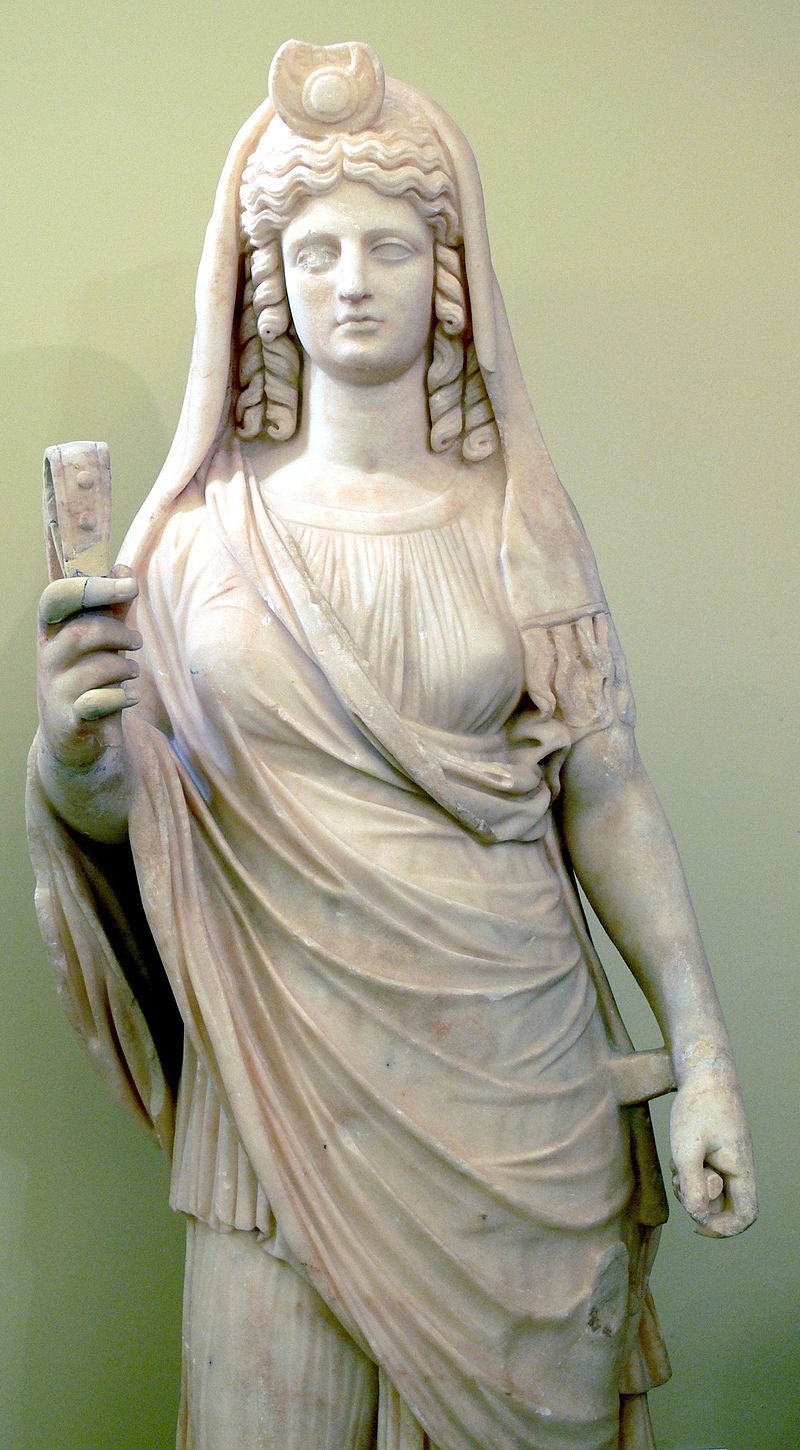
Bernini's statue:

Dante Gabriel Rosetti's 1874 painting:
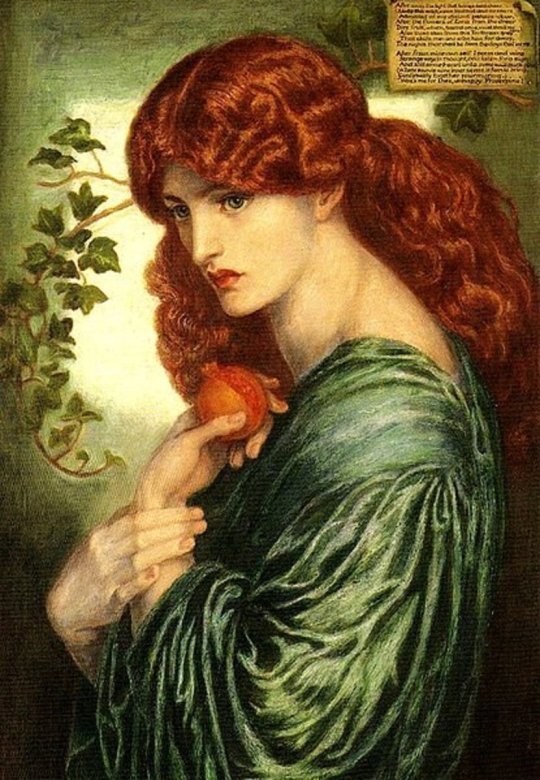
Frederic Leighton's painting The Return of Persephone, 1891:

From Disney's Silly Symphony The Goddess of Spring, 1934 (her movements are sometimes laughable, but her character design itself is pretty):

And from D'Aulaures' Book of Greek Myths:
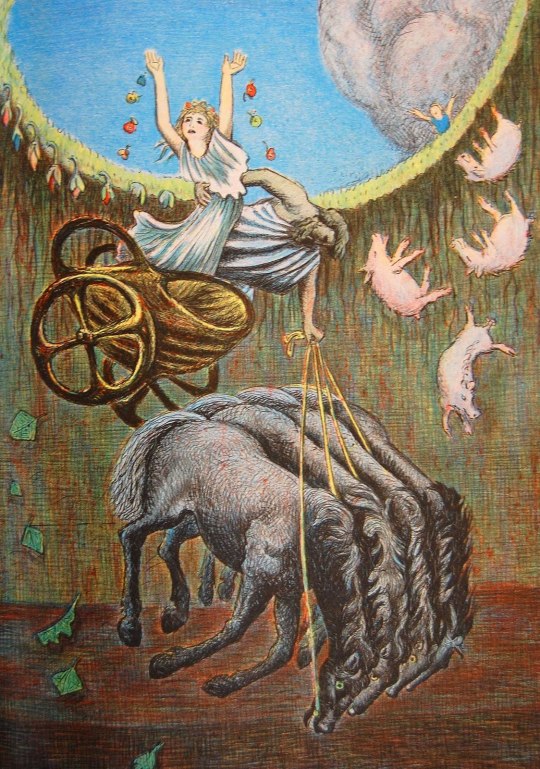
15 notes
·
View notes